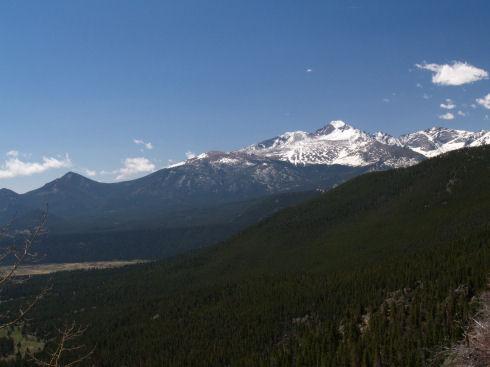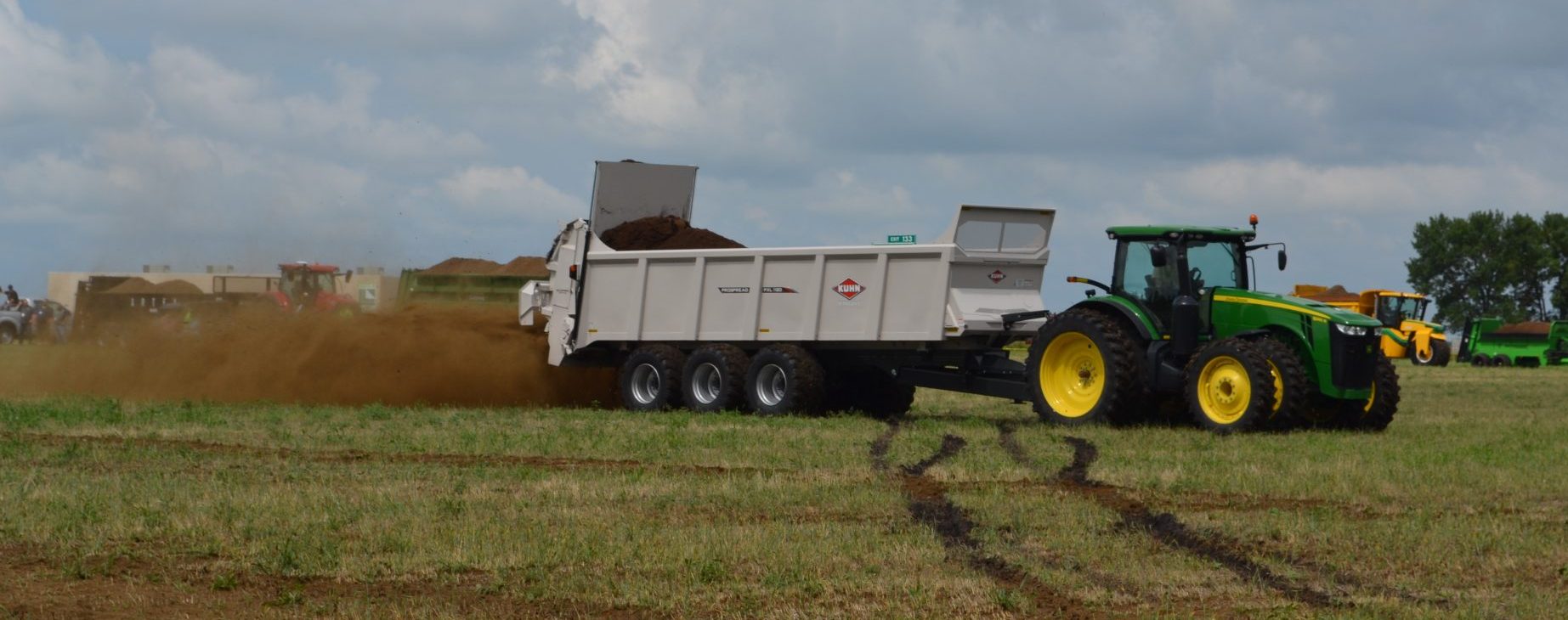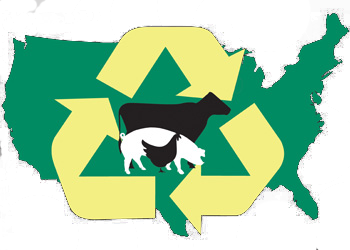![]() Waste to Worth home | More proceedings….
Waste to Worth home | More proceedings….
 The efforts related to Colorado’s Rocky Mountain National Park are voluntary, yet there are nitrogen reduction targets, or milestones, established over five year increments out to the year 2032. If a milestone is not met, mandatory controls could follow. How can the proactive emissions reduction efforts being taken by livestock and crop producers today be recognized or credited should mandatory controls be required at some future date? For example, could an agriculture certainty framework (used more for water quality protection/nutrient runoff) be used to validate actions being taken today for air quality purposes? How might an ag certainty program work and what partners should be at the table? Are there other approaches that states are using or researching that Colorado should consider?
The efforts related to Colorado’s Rocky Mountain National Park are voluntary, yet there are nitrogen reduction targets, or milestones, established over five year increments out to the year 2032. If a milestone is not met, mandatory controls could follow. How can the proactive emissions reduction efforts being taken by livestock and crop producers today be recognized or credited should mandatory controls be required at some future date? For example, could an agriculture certainty framework (used more for water quality protection/nutrient runoff) be used to validate actions being taken today for air quality purposes? How might an ag certainty program work and what partners should be at the table? Are there other approaches that states are using or researching that Colorado should consider?
During the session, presenters will speak to:
- a meteorological Early Warning System that is being developed in Colorado to alert livestock producers in advance of an upslope weather event. What methods of messaging the alerts would be most successful, and what other applications (or sectors) might a meteorological Early Warning System be used for?
- why it is important for producers (crop and livestock) to adopt BMPs and voluntary controls to address the problem of Nitrogen Deposition in Rocky Mountain National Park and what has been done so far in this regard.
- agriculture, and specifically livestock agriculture’s, engagement in doing our part to sustain and improve the environment in which we operate.
Even though it is too early to make any conclusions as to the success of the proactive approach (i.e., voluntary measures versus regulatory controls) or to the extent that current state air quality plans or best management practices are having on nitrogen deposition in the park, the presentation is intended to share some of the challenges and achievements, to date, of this particular stakeholder-driven approach.
Presenters

Phyllis Woodford is the program manager of the Environmental Agriculture Program at the Colorado Department of Public Health & Environment. Phyllis has worked for the department 18 years and during this time has worked to educate the department on agriculture’s unique issues related to environmental concerns and the need for science-based solutions. She has a master’s degree in Environmental Policy & Management from the University of Denver and a BS in Criminal Justice from Kent State University. Prior to working for the State of Colorado, Phyllis served as a legislative assistant to an Ohio congressman in Washington, D.C.
Phyllis I. Woodford
Division of Environmental Health and Sustainability
Colorado Department of Public Health and Environment
4300 Cherry Creek Drive South
Denver, CO 80246-1530
Phone: 303-692-2978
Fax: 303-782-4969
E-mail: phyllis.woodford@state.co.us

Bill Hammerich has served as the Chief Executive Officer of the Colorado Livestock Association (CLA) for the past ten years. He grew up on a cattle and farming operation in Western Colorado and after graduating from high school he attended Colorado State University where he graduated with a degree in Agricultural Economics. Following graduation he began his working career with Monfort of Colorado, then Farr Feeders and was with the Sparks Companies before joining CLA in 2002.
His time spent in the cattle feeding industry provided him not only with an understanding of how to feed cattle but also the importance of protecting and sustaining the environment in which one operates. Such a background has served Bill and the CLA staff well as they represent a diversified CLA membership in addressing those environmental issues with which the livestock industry has to deal. Bill and his wife Sabrina live in Fort Morgan, Colorado and have two grown children, Justin and Jessica.
 Jon Slutsky and his wife, Susan Moore, are first generation dairy farmers and have owned and operated La Luna Dairy in Northern Colorado since 1981. Currently they milk 1300-1400 cows at their farm near Wellington. They have one adult daughter. Jon is a native of New York; however he grew up and attended school in Southern California. He graduated from the University of California-Riverside with a bachelor’s degree in biology in 1972. As general manager of the dairy, Jon oversees the management of the farm including 2600 cows and calves and 26 employees.
Jon Slutsky and his wife, Susan Moore, are first generation dairy farmers and have owned and operated La Luna Dairy in Northern Colorado since 1981. Currently they milk 1300-1400 cows at their farm near Wellington. They have one adult daughter. Jon is a native of New York; however he grew up and attended school in Southern California. He graduated from the University of California-Riverside with a bachelor’s degree in biology in 1972. As general manager of the dairy, Jon oversees the management of the farm including 2600 cows and calves and 26 employees.
In order to add to the dairy data base and body of knowledge and assist in making good BMPs available to the industry, the farm has a policy of giving access as frequently as possible to animal and environmental researchers in the university community. The dairy tries to be a strong member of the local business and agricultural communities. Jon represents the dairy and the industry locally as a board member of the Wellington Area Chamber of Commerce, the Larimer County Agricultural Advisory Board, and the Colorado Livestock Association. He also serves on several other committees as time permits.
Jon was a member of the Colorado Air Quality Control Commission from 2007 to 2012 and is currently a member of the Colorado Water Quality Control Commission.
The authors are solely responsible for the content of these proceedings. The technical information does not necessarily reflect the official position of the sponsoring agencies or institutions represented by planning committee members, and inclusion and distribution herein does not constitute an endorsement of views expressed by the same. Printed materials included herein are not refereed publications. Citations should appear as follows. EXAMPLE: Authors. 2013. Title of presentation. Waste to Worth: Spreading Science and Solutions. Denver, CO. April 1-5, 2013. URL of this page. Accessed on: today’s date.

